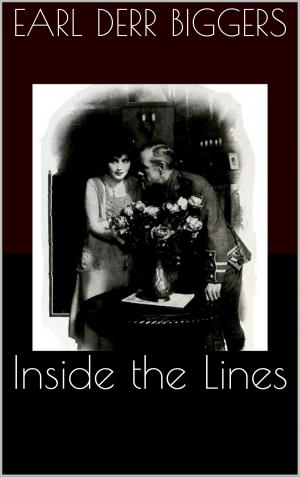| Author: | by James Hume Nisbet | ISBN: | 1230000847049 |
| Publisher: | CP | Publication: | December 15, 2015 |
| Imprint: | Language: | English |
| Author: | by James Hume Nisbet |
| ISBN: | 1230000847049 |
| Publisher: | CP |
| Publication: | December 15, 2015 |
| Imprint: | |
| Language: | English |
Philip Mortlake stood near the gangway of the Rockhampton, and watched with languid attention the passengers who were to be his companions for the next six weeks. He had come early on board, and alone—a weary and world-worn man, the wrong side of forty, disappointed with life, disillusioned, prematurely grey, with what might have been ties and fetters of affection snapped and withered. He was leaving England, hopeless and indifferent, and going where or to what he neither knew nor cared.
Philip Mortlake was in a very bad way, and likely to be worse if something did not come to give him the rousing up which was required in his case. He was troubled with a disease which is considerably on the increase at the close of this busy century, a trouble not unlike and yet different from ennui, because it proceeds from opposite causes, a longing for our class, a weariness which is all-devouring, a melancholy and apathy which cannot be lifted.
The victim to ennui has been born aimless, and surfeited himself by indulgences; but the victim to this trouble is the active worker who has over-exerted himself, the passionate lover who has been wantonly maltreated in the court of love, and who at last breaks down, in spite of his frantic efforts to act the part of a man.
Philip Mortlake, after years of battling with Destiny, had been struck down, and, like the wounded animal, all that he knew yet of his wounds was the desire for solitude.
His doctors had advised him to go for a long voyage, not by himself, but where there was good company, people who did not know about him or his peculiar reasons for leaving England. The condolences of friends were poison to his mind. A man may be comforted by friendship if death has snatched all that he loves from him, but not in such a case as Philip's.
He had loved, wooed and married a woman who gave him her heart in return, then, after a period of trust and happiness, she had changed towards him; instead of trust she had plagued him almost to the point of madness with vile suspicions, evil and groundless charges, until gradually, without reason or provocation on his part, her love and faith had become the direst hatred. She had grown to be his most bitter enemy, who would pause at nothing to encompass his ruin and destruction.
Had they been lovers only they might have parted, and the hatred on one side and the passionate gnawing misery on the other might have been fought down in the course of time. But they were married, and could not be liberated from the yoke, except at the loss of their reputation.
Philip Mortlake stood near the gangway of the Rockhampton, and watched with languid attention the passengers who were to be his companions for the next six weeks. He had come early on board, and alone—a weary and world-worn man, the wrong side of forty, disappointed with life, disillusioned, prematurely grey, with what might have been ties and fetters of affection snapped and withered. He was leaving England, hopeless and indifferent, and going where or to what he neither knew nor cared.
Philip Mortlake was in a very bad way, and likely to be worse if something did not come to give him the rousing up which was required in his case. He was troubled with a disease which is considerably on the increase at the close of this busy century, a trouble not unlike and yet different from ennui, because it proceeds from opposite causes, a longing for our class, a weariness which is all-devouring, a melancholy and apathy which cannot be lifted.
The victim to ennui has been born aimless, and surfeited himself by indulgences; but the victim to this trouble is the active worker who has over-exerted himself, the passionate lover who has been wantonly maltreated in the court of love, and who at last breaks down, in spite of his frantic efforts to act the part of a man.
Philip Mortlake, after years of battling with Destiny, had been struck down, and, like the wounded animal, all that he knew yet of his wounds was the desire for solitude.
His doctors had advised him to go for a long voyage, not by himself, but where there was good company, people who did not know about him or his peculiar reasons for leaving England. The condolences of friends were poison to his mind. A man may be comforted by friendship if death has snatched all that he loves from him, but not in such a case as Philip's.
He had loved, wooed and married a woman who gave him her heart in return, then, after a period of trust and happiness, she had changed towards him; instead of trust she had plagued him almost to the point of madness with vile suspicions, evil and groundless charges, until gradually, without reason or provocation on his part, her love and faith had become the direst hatred. She had grown to be his most bitter enemy, who would pause at nothing to encompass his ruin and destruction.
Had they been lovers only they might have parted, and the hatred on one side and the passionate gnawing misery on the other might have been fought down in the course of time. But they were married, and could not be liberated from the yoke, except at the loss of their reputation.















